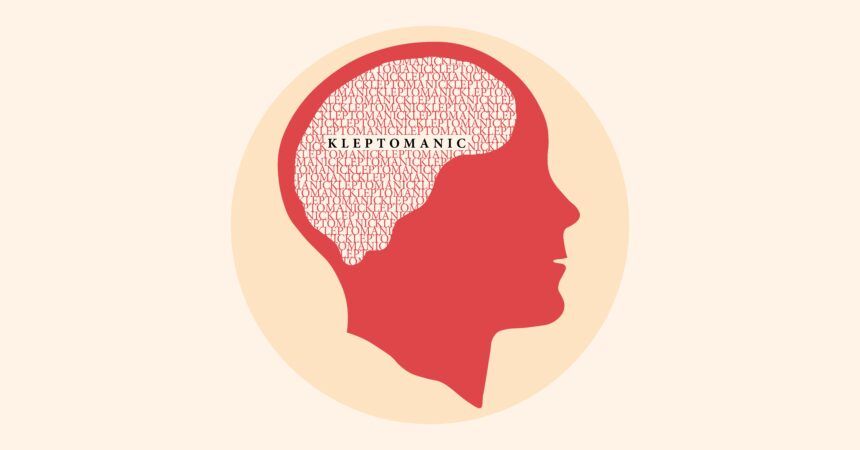A dictionary says that shoplifting is an “illegal act of taking goods from a shop without paying for them.” But, is it really just limited to the mere act of it, or is there some hidden psychological connection that we as a society fail to acknowledge?
As common as the act of shoplifting, we often find it difficult to wrap our heads around the matter. We tend to associate a hidden selfish motive with it, like lying and greed. We can not understand how a person unintentionally can take away 3-4 items and not pay for them. How can they forget? Is it even possible to forget? All these questions rub the rules of our society in the wrong way, paint shoplifters with the dirt of a crime rather than analyzing the psyche of the person behind the act.
Impulse shoplifting is very different from regular stealing. More often than not, shoplifting is caused by the mental illness of the person rather than his/her materialistic wants. For such a shoplifter, the act of unknowingly taking off with things is a coping mechanism rather than an executed planning. In India, there are about 1 million cases reported every year. As per studies, there are seven different types of shoplifters, including those who do it for their greed or economic needs. But more than 50% of all shoplifters are found to suffer from addictive-compulsive disorders. They are also found to have other addictions such as alcohol abuse, gambling, etc. Shoplifting is their coping mechanism to deal with the emotional and mental trauma they’re actually dealing with. When confronted they’d often associate their act with remorse and guilt or even fear. Shoplifting starts as an urge to quench the subconscious mind and often turns into kleptomania, an impulse control disorder. In other words, when stealing becomes an addiction, it is called kleptomania. Kleptomaniacs often lift off items that are of no use to them only to stash away.
The following are some of the common symptoms associated with kleptomania:
- Inability to resist the urge to steal items that aren’t even necessary.
- Build up extreme tension and anxiety just before the act.
- Feeling extremely happy and relieved while doing the act.
- Intense remorse and guilt after committing the act.
- If got caught, they show guilt towards their action and later even pay for the items.
- The stealing is usually unplanned and is done to satisfy an irrational and irresistible urge.
Although as per medical research, the exact causes of kleptomania are not known yet, some of the associated reasons could be:
- Low levels of serotonin. Handling the mood and emotions of every human being, serotonin is found to be less in people with impulsive disorders.
- Dopamine release. Dopamine is associated with the feeling of being rewarded. Sometimes shoplifting leads to a release of dopamine, causing it to become an addiction.
- Imbalances in the brain’s opioid system make us unable to resist our urges.
- Most times people with kleptomania have other conditions as well like bipolar disorder, anxiety disorder, an eating disorder, substance use disorder, or a personality disorder.
- Researchers have established links that show that major stresses in other spheres of life might trigger this behavior.
- A family history of kleptomaniacs can also put one at risk of it. More so if the person is a female, as two-thirds of kleptomaniacs are female.
Thankfully kleptomania is not a punishable offense under the Indian Penal Code but if left untreated could become a serious issue. The impulse and the inevitable remorse and humiliation associated with kleptomania would hamper one’s daily life as well as his/her loved ones. Seeking help might seem overwhelming, but it is most definitely the only way to come out of it.
Kleptomaniac shoplifting: a petty crime or a cry for help?
Kleptomaniacs represent a subset in our society, these individuals are characterized by a sense of extreme tension before committing an act of stealing which is followed by feelings of pleasure and relief after the act is done. They have compulsive behavior making it impossible for them to refrain from stealing.
Often kleptomaniac shoplifters are people who have ample money and don’t steal for saving up from spending money. They are often people who can easily pay the value but are trapped in compulsive patterns owing to an underlying mental disorder like impulse disorder necessitating the need for instant gratification, or emotional gratification, and the cause can be emotional instability or more severe as a brain injury, in which case the person stops identifying the act of stealing as a bad thing.
Kleptomania is a difficult situation to treat solitarily and the treatment often requires medical intervention as well. Cognitive behavioral therapy (CBT) is the most common form of psychotherapy used for such cases but we often use Hypnosis and work with such clients on a Subconscious level. There are certain medications that treat the underlying mental disorder causing the individual to fray. You can ask people to go out with you and check you in case you unknowingly pick things. Remember it’s not going to be corrected overnight but gradual continuous efforts will surely make the situation better.

Arouba Kabir Pathan
Mental Health Therapist/Counselor
Founder, Enso Wellness





